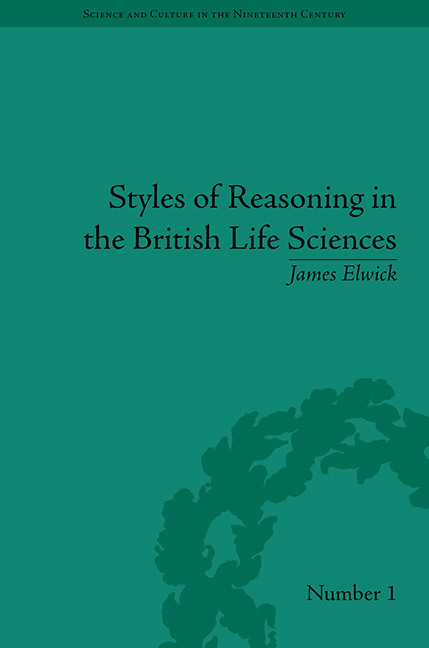5 - 1837: The Accession of Palaetiology
Summary
This chapter discusses the style of ‘palaetiology’. The term is Whewell's, set out in his 1837 History of the Inductive Sciences to denote the historic sciences. In palaetiology one investigated how the present state of things had emerged from its origins. Just as Bentham suspected of analysis:synthesis, it is likely that palaetiology has been with humanity for a very long time, although there are differences of opinion on this point.
The next two chapters note how palaetiology grew in importance in British life science, becoming an acceptable alternative to analysis:synthesis only in the early 1850s. It provided a different set of interlocking assumptions and explanations. A new group of British life researchers used it not only to reinterpret exemplary animal cases but also to overthrow analytic:synthetic science, which they felt was antiquated.
One of the key distinctions between analysis:synthesis and palaetiology in the life sciences was a difference in the direction in which development was believed to proceed. Again, analysis:synthesis depicted development occurring centripetally, from a circumference inwards to a centre. But palaetiology instead showed development as occurring centrifugally, starting from a central point and ramifying outwards. Though there were attempts at compromise, researchers seem to have been constrained to commit to one style or the other. It is shown below that even when an analytic:synthetic researcher appropriated work or methodology from palaetiology, he turned it to analytic:synthetic ends and vice versa.
These commitments tended to pull life researchers into two different camps. They differed on what kinds of evidence to use to solve various puzzles. Indeed each camp valued certain problems over others. Clashes heightened the differences between the groups. When members from each style argued, sometimes they could not even agree on what it was they were arguing about. The infamous Owen-Huxley disputes can therefore be seen as fights between representatives of two different camps and thus two different styles of reasoning.
- Type
- Chapter
- Information
- Styles of Reasoning in the British Life SciencesShared Assumptions, 1820–58, pp. 109 - 130Publisher: Pickering & ChattoFirst published in: 2014



